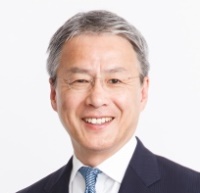
by Noriyuki Morimoto
The following is a story from Ihara Saikaku’s Buke Giri Monogatari (Stories of samurai ethics). Aoto Fujitsuna, who had lost some small coins in the river, offered a large sum of money to a number of laborers to find them, thinking that leaving the coins lost would be a loss to society. One of the men falsely presented his own coins, but the truth was exposed by another laborer. Fujitsuna strips the wrongdoer of his clothes and forces him to find the coins, which took 97 days. The laborer who had exposed the injustice was eventually found to have been a samurai whose circumstances had led him to live among commoners. This man was given back his samurai status.
As a merchant, Saikaku was strongly bound by the status order of the Edo period, with the samurai at the top of the hierarchy. Rather than being critical of the 97 days of futile labor imposed on one of his peers, he affirmed the rule of the samurai with a supportive stance for the imposition of punitive labor as an enforcement of that value system. This shows the limitation of the merchant culture in the Edo period.
Needless to say, it was military power that effectively supported the status-based rule of the samurai class. The samurai’s inherent social mission of maintaining a peaceful order backed by military force was the logic that justified their rule. In the early years of the Edo shogunate, which put an end to decades of conflict, this also meant protecting the economic interests and safety of the public.
However, by Saikaku’s time, the society was at peace; economic interest no longer seemed like a valid reason to justify samurai rule. Rather, the samurai-ruled order was being felt as an obstacle for the rising growth of commercial capital. It is only against this contradiction that we can see the significance of the laborer who deceived Fujitsuna. Here was ingenuity that could effectively break down the dominant structure from within.
What was unjust in the eyes of the samurai, the rulers of the old order, was clever and innovative in the eyes of the bearers of the new order. The injustice of the laborer who deceived Fujitsuna was an injustice from the standpoint of the samurai, but an advantage from the standpoint of the laborer. This difference in values is critically important.
There are two types of injustice: the righteous injustice that leads to creation and innovation, and the injustice that is merely unjust. The essence of the modern-day work style reform is to provide an environment where righteous misconduct is encouraged, and to foster a sensibility among the members of the organization to recognize unjust injustice.
[Category /Work-Style Reform]

Chief Executive Officer, HC Asset Management Co.,Ltd. Noriyuki Morimoto founded HC Asset Management in November 2002. As a pioneer investment consultant in Japan, he established the investment consulting business of Watson Wyatt K.K. (now Willis Towers Watson) in 1990.

